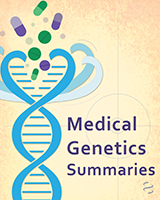| HLA-B*15:02 negative and HLA-A*31:01 negative | Normal risk of carbamazepine-induced SJS/TEN, DRESS, and MPE | Use carbamazepine per standard dosing guidelines.b | Strong | N/A |
| HLA-B*15:02 negative and HLA-A*31:01 positive | Greater risk of carbamazepine-induced SJS/TEN, DRESS, and MPE | If patient is carbamazepine-naïve and alternative agents are available, do not use carbamazepine. | Strong | Other aromatic anticonvulsantsd have very limited evidence, if any, linking SJS/ TEN, DRESS, and/or MPE with the HLA-A*31:01 allele, and thus no recommendation can be made with respect to choosing another aromatic anticonvulsant as an alternative agent. |
| If patient is carbamazepine-naïve and alternative agents are not available, consider the use of carbamazepine with increased frequency of clinical monitoring. Discontinue therapy at first evidence of a cutaneous adverse reaction. | Optional | N/A |
| The latency period for cutaneous adverse drug reactions is variable depending on phenotype; however, all usually occur within three months of regular dosing. Therefore, if the patient has previously used carbamazepine consistently for longer than three months without incidence of cutaneous adverse reactions, cautiously consider use of carbamazepine. | Optional | Previous tolerance of carbamazepine is not indicative of tolerance to other aromatic anticonvulsants.d |
| HLA-B*15:02 positivec and any HLA-A*31:01 genotype (or HLA-A*31:01 genotype unknown) | Greater risk of carbamazepine-induced SJS/TEN | If patient is carbamazepine-naïve, do not use carbamazepine. | Strong | Other aromatic anticonvulsantsd have weaker evidence linking SJS/TEN with the HLA-B*15:02 allele; however, caution should still be used in choosing an alternative agent. |
| The latency period for drug-induced SJS/TEN is short with continuous dosing and adherence to therapy (4-28 days), and cases usually occur within three months of dosing; therefore, if the patient has previously used carbamazepine consistently for longer than three months without incidence of cutaneous adverse reactions, cautiously consider use of carbamazepine in the future. | Optional | Previous tolerance of carbamazepine is not indicative of tolerance to other aromatic anticonvulsants.d |
